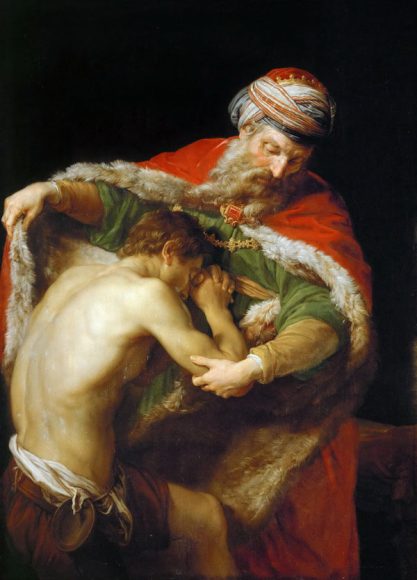Recently, I received a letter that floored me — so much so that I read it twice before I tore it into pieces.
It was a fundraising letter from an organization with which I’ve had a long association, demanding a $6,000 contribution. I can only suppose that the number was based not solely on my past generosity — which in no way approached $6,000 — but rather on my appearance and position as WAG editor-in-chief. But the letter — which had none of the savvy of “We hope you’ll be as supportive as you have in the past” or even a tiered contribution system — missed the true nature of giving, which is bound up with the sanctity of the
individual giver. For anyone who has ever received or given a gift — particularly in this the season of giving — knows that a gift is as much about the giver as it is about the recipient.
Now what do I mean about the sanctity of the individual? To wit: You cannot “require” a gift from anyone. Yes, I know President John Adams said, “There are only two creatures of value on the face of the earth — those with the commitment and those who require the commitment of others.” But the corollary of that is that someone can — and probably will — refuse the commitment, Adams’ estimable opinion notwithstanding.
And yet, some seem not to understand this. When I discussed the letter with other members of the group — assuming they, too, had received similar letters and would be at least sympathetic — I was floored a second time. They suggested I talk with the head of the organization.
But why should I? What I choose to do with my money is my own business. I felt like saying, “What are you, a bunch of sheep?”
Instead, since I’m a writer — and, as Nora Ephron (or more accurately, Nora Ephron’s mother) liked to say, “Everything is copy” — I decided to write about our misunderstanding of the role of the individual in giving. It has taken me back in my mind to a philosophy class in logic that I attended as a freshman at Trinity College in Washington, D.C. The professor, whose wife was a feminist, announced on the first day to the all-female assembly that women were illogical creatures. That made me determined to ace the course, but it wasn’t easy. Indeed, he always got us with such tricky thought experiments as the one in which we had to save a city but could only do it by sacrificing someone else’s life. Seems a simple numbers game, right?
Except, the professor said, you can’t quantify life. One life isn’t worth more or less than another or 1,000 lives or 10 million. So you can’t sacrifice someone else’s life to save the city. You have to let the city go. That’s why Soviet dictator Joseph Stalin was unwittingly correct when he said, “A single death is a tragedy. A million deaths is a statistic.” I’m not suggesting “Uncle Joe” — as President Franklin D. Roosevelt slyly called him — was a champion of individual freedom. Far from it. But rather that a single death is as important as a million, because a million deaths is made up of one million single death.
Just as you can’t sacrifice someone else’s life, you can’t force someone to give you a gift — no matter how often you may hint. And you can’t require someone to give you as much or the same as he has given someone else. The Gospels contain two beautiful and beautifully confounding parables on this. The Prodigal Son is feted by his father on his return, leaving the loyal, elder son who has “never received so much as a young goat to celebrate with friends” considerably miffed. In a separate, vineyard parable, the workers hired late in the day receive the same pay as those who arrive early, angering the all-day laborers, who clearly didn’t have a collective bargaining agreement.
The parables are, of course, about Jesus calling the Gentiles as well as the Jews, God’s Chosen People, to his mission. But there is a practical, secular lesson here: Someone else’s property isn’t yours to bestow, even if you anticipate it as a potential inheritance from your parents.
Individualism trumps giving. That’s why when you encounter real sacrifice — a real gift of the self — it’s so precious and poignant. We all know O. Henry’s story “The Gift of the Magi” in which a poor husband and wife fulfill each other’s heart’s desire on Christmas, ironically rendering the gifts useless. She sells her long hair to buy a chain for the pocket watch he has sold to buy her a set of hair combs.
But hair grows back and the couple might one day have enough to buy another watch. Their gifts — which come from self-sacrifice and a true tribute to the other’s self — are an investment in their future together.
How much greater then is the sacrifice of your own life for those of your friends? In “The Thin Red Line” — Terrence Malick’s impressionistic film of James Jones’ novel about the Guadalcanal Campaign in World War II — the Christ-like Pvt. Witt (Jim Caviezel) draws the enemy Japanese away from his unit, ensuring the unit’s escape and his own death. It’s a conscious decision that Witt and his comrades do not debate: This is his gift to them — a gift of time. He will not take “no” for an answer.
Part of the beauty of a true gift is that the receiver understands and accepts it with a gratitude that does not deny the equality of either the recipient or the giver. Witt dies and his buddies honor him by burying his body before they depart their island locale for the next encounter.
This is perhaps the central tenet of all religions — the subjugation of the one for the good of the many. And yet, we are told, God gives us all free will. Maybe he shouldn’t have done that if he
expected perfect obedience, no?
Or perhaps the God of all religions understands that without that free will, a gift has no meaning.
I will, of course, make a donation to the organization. That’s the price of belonging. Also a fortune cookie at the Chinese restaurant where I regularly write said: “Make a small donation. It’s the right thing to do.” (The universe speaks.)
But I also heed the words of the French Renaissance philosopher Michel de Montaigne, who wrote: “Lend yourself to others, but give yourself to yourself.”





